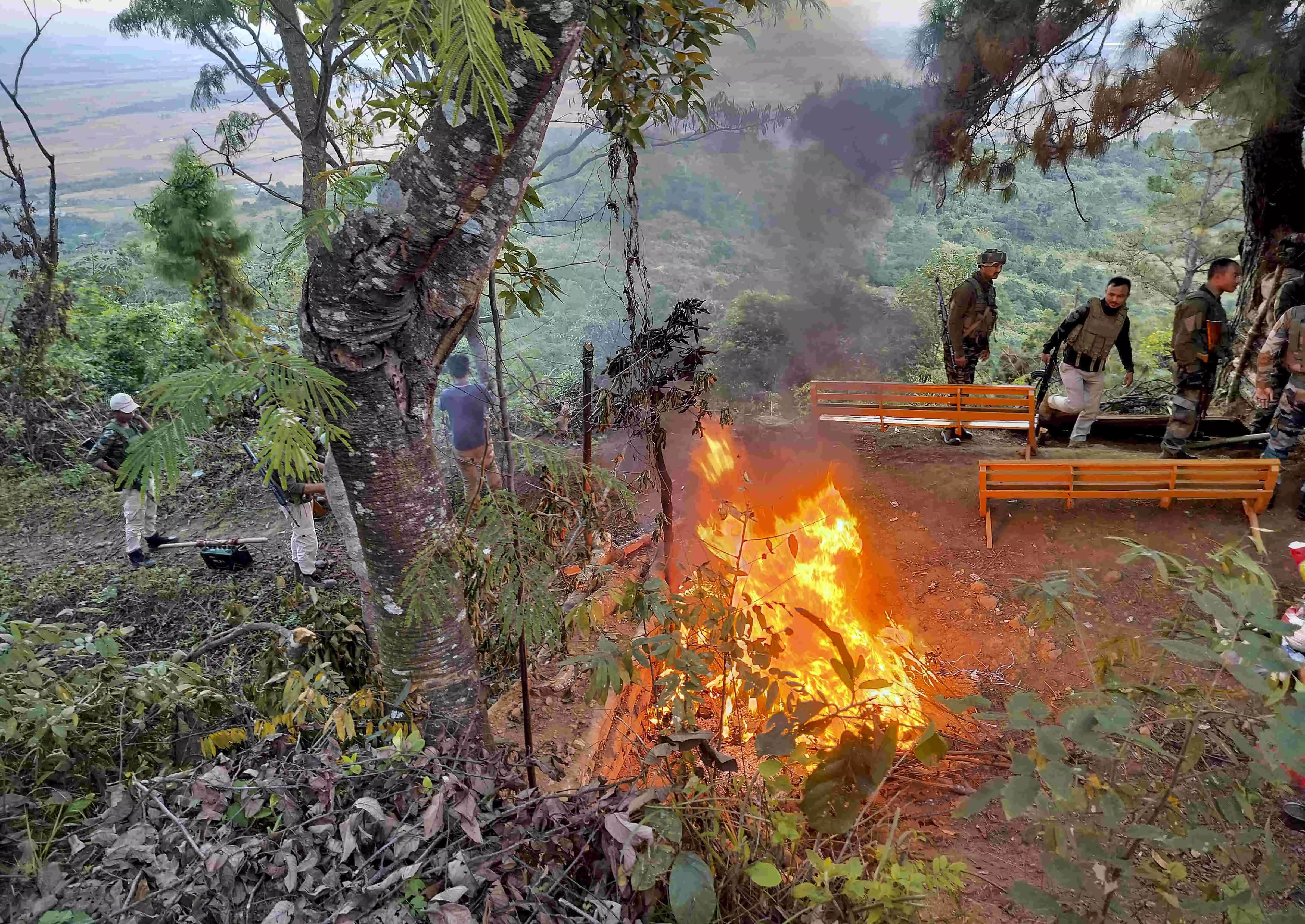An ominous storm

To say that Manipur has come to a boil again might not be an appropriate statement, for it has been burning continuously for the past 18 months. That the manageable crisis has continued in the state for such a long period of time without any breakthrough peace negotiation is, in itself, a living proof of the administration's failure to contain the violence in the strategically important state. Both the state and the Central government, steered by the BJP, have failed utterly in restoring peace in Manipur. Over the past two days, violent protests have erupted across the Imphal Valley, with angry mobs attacking the homes of ministers and MLAs. The recovery of six decomposed bodies of Meitei group members from a relief camp, believed to be of individuals abducted after the Jiribam shootout, has triggered an outpouring of grief, fury, and despair—all mixed in equal measure. It can be safely said that months of unrelenting violence have pushed the state to the edge of anarchy.
The breakdown in law and order reflects a deeper crisis that is rooted in ethnic divisions, mistrust, and a failure of leadership. The conflict between the Meitei and Kuki-Zo communities has turned Manipur into a battlefield where armed groups and mobs have been acting with virtual impunity. Civil society groups, particularly in the valley, have demanded decisive action, with the Coordinating Committee on Manipur Integrity (COCOMI) issuing ultimatums to the state and central governments. They have called for a military crackdown on armed groups, warning that failure to act will invite more public anger. The situation is equally volatile in the hill districts, where the Kuki-Zo tribal bodies have intensified their protests. They demand the extension of the Armed Forces (Special Powers) Act (AFSPA) to all valley districts while advocating its withdrawal from hill areas. This contradictory tug-of-war over AFSPA has added to the chaos of an already combustible crisis.
The chief minister of Manipur, N Biren Singh, who is alleged by many to be biased in favour of the Meitei community, is finding himself caught in an ominous storm. At a point in time, pandering to the interests of the Meitei community would have appeared politically fruitful for Singh. But now, when the situation has assumed uncontrollable proportions, there appears very little scope of action for the CM who is being targeted from all sides. Conrad Sangma, who leads the second-largest alliance party with seven MLAs in the BJP-led NDA state government, has withdrawn support from the government. Justifying his withdrawal, Sangma said in clear terms: “We strongly feel that the Manipur state government under the leadership of Shri Biren Singh has completely failed to resolve the crisis and restore normalcy.”
Unfortunately, the realities for the central government have been no less perplexing. The centre’s visible silence on continuously burning Manipur—be it due to negligence or as a politically tactical move that eventually backfired—has sent a very wrong message across the state and throughout India. Whatever be the reason, negligence or political miscalculation, a strategic state of India—or for that matter any other state—should not have been allowed to descend into such an abyss of chaotic violence. The time for half-measures and hollow promises is now over. The state and central governments must act decisively to restore order and address the root causes of the conflict. Armed groups must be disarmed, and the rule of law must be reestablished. But military action alone will not bring peace. A meaningful political dialogue, involving all stakeholders, is essential to rebuild trust and heal the wounds of this fractured state.



